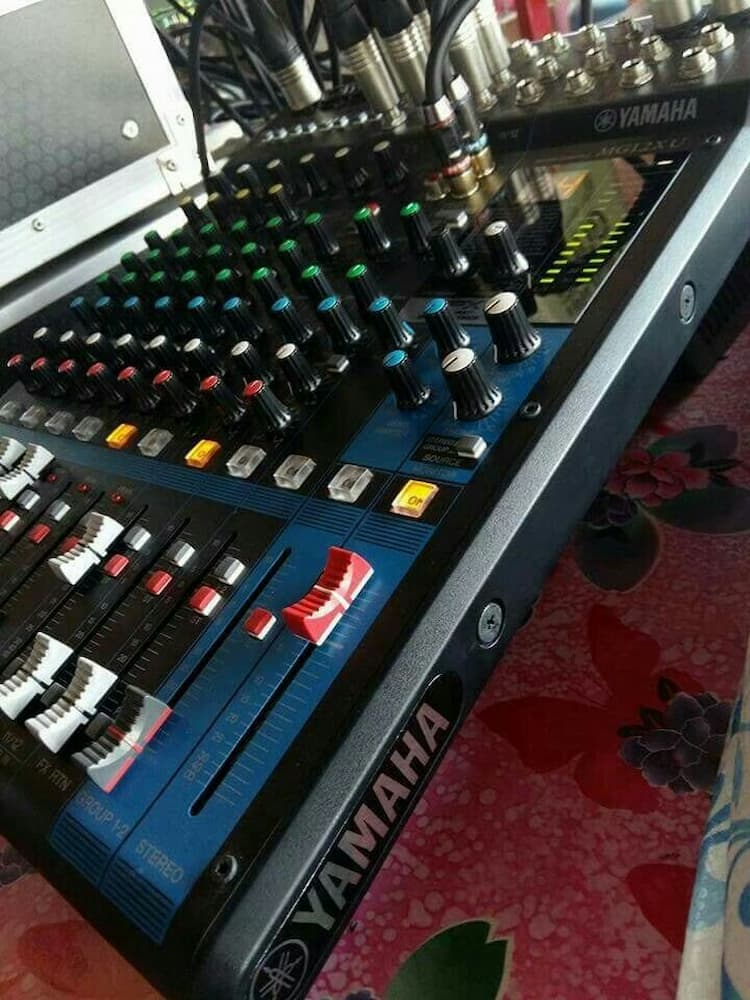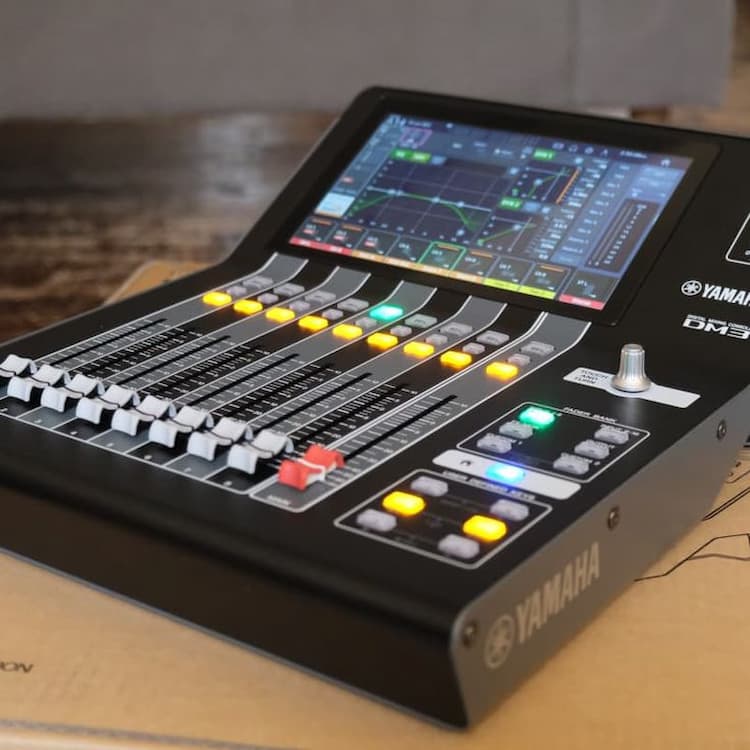Whether you’re laying down tracks in a studio, running live sound at a gig, or producing a podcast from your bedroom, the audio mixer is the tool that stands between chaos and clarity. Often called the brain of the audio setup, mixers give you complete control over every sound you produce. So, if you’re serious about sound, a reliable mixer isn’t just helpful, it’s a must. The following guide might give you a hand in getting the right one.
Popular Types

source: pinterest.com
Unlock your creative potential with compact and next-level performance audio mixers. When it comes to audio mixers, one size doesn’t fit all. Different setups call for different styles. Here are the most popular types and what makes them stand out.
Analogue
Analogue mixers are a timeless option, celebrated for their rich sound and hands-on control. They are well-suited for live events and smaller recording spaces, featuring intuitive knobs and faders that allow for quick adjustments in real-time. Renowned brands like Mackie and Behringer are popular choices in this segment.
Digital
Digital mixers are loaded with features such as integrated effects, EQ presets, and multi-track recording capabilities, making them ideal for users looking for enhanced power and versatility. These mixers are frequently utilised in contemporary studios and performance venues where space and automation are key. With touchscreen controls and the ability to be operated through applications remotely, they provide exceptional convenience.
Powered
Powered audio mixers integrate both a mixer and an amplifier into a single unit, making them excellent for mobile sound systems. They are perfect for bands, small gatherings, or DJs, as these all-in-one solutions streamline your equipment setup without compromising on quality.
Virtual
For those involved in podcasting, streaming, or home music production, virtual for-sale audio mixers found in DAWs (Digital Audio Workstations) such as Logic Pro or Ableton grant complete control directly from your computer interface.
Every type of mixer has its unique advantages, so choose one that aligns with your preferences, available space, and sound aspirations.
Features to Look for

source: pinterest.com
Picking the perfect audio mixer can significantly influence your sound setup. Whether you’re mixing live shows, recording in a studio, or creating content at home, here are the essential features to consider ensuring your mixer provides clarity, control, and creativity.
Channel Count
The number of input channels dictates how many audio sources (such as microphones, instruments, or playback devices) you can connect. For straightforward podcasting, 2-4 channels may be enough, but live bands or intricate recordings might require 8, 16, or even more.
Equalisation Controls
Equalisation (EQ) allows you to modify the sound of each channel like enhancing vocals, reducing harsh frequencies, or warming up bass tones. Aim for at least a 3-band EQ (low, mid, high) on each channel for more effective sound shaping.
Integrated Effects
Effects like reverb, delay, chorus, and compression can significantly improve your mix. Many digital and powered mixers include built-in effects, which saves you the expense and space of external equipment.
Phantom Power Supply
If you plan to use condenser microphones, it’s essential to have a mixer with phantom power (+48V) to enable them. This feature is crucial for capturing professional-quality vocals and acoustic recordings.
USB or Digital Interface
For home studios, podcasting, or streaming, mixers equipped with USB or digital outputs are invaluable. They facilitate direct connections to computers or DAWs for effortless recording and editing.
Auxiliary Sends and Basses
These features enable you to create separate mixes, which are beneficial for monitoring or applying effects to specific channels. They are vital for live setups and advanced mixing requirements as well.
Build Quality and Ease of Transport
Look out for a robust chassis, user-friendly layout, and portability if you intend to move it frequently. For performing musicians and mobile arrangements, a compact and sturdy design is essential. All in all, with the right mix of features, your mixer evolves from mere hardware to a valuable sound-shaping instrument for expression.
Additional Buying Factors

source: pinterest.com
Aside from primary features, various other factors can affect the efficiency, convenience, and long-term worth of your audio mixer.
Purpose and Environment
Are you mixing for live performances, doing home recordings, podcasting, or streaming? Your specific use will dictate everything, from the number of inputs required to whether you favour the straightforwardness of analogue or the flexibility of digital.
User Experience Level
Newbies should choose a mixer that offers an intuitive layout and clear labelling. More experienced users might opt for more extensive customisation, multiple auxiliary sends, or integrated DSP effects.
Compatibility
Make sure your mixer connects seamlessly with your current equipment—microphones, speakers, recording software, or interfaces. USB or Bluetooth connectivity can greatly enhance modern setups.
Budget
Mixers may vary greatly in price, ranging from a couple of hundred to several thousand dollars. Establish a sensible budget and weigh the cost against necessary features. Occasionally, investing a bit more may yield better sound quality and durability.
Brand Reputation and Support
Opt for reliable brands for assurance of quality, warranty support, and easier access to assistance or replacement components. Choosing the ideal mixer is about discovering the right fit for your sound, workflow, and objectives.

